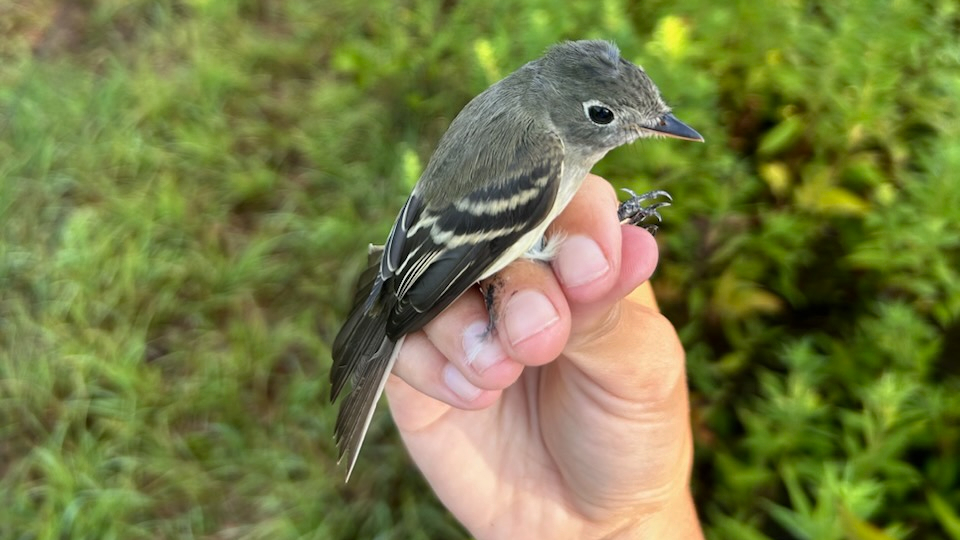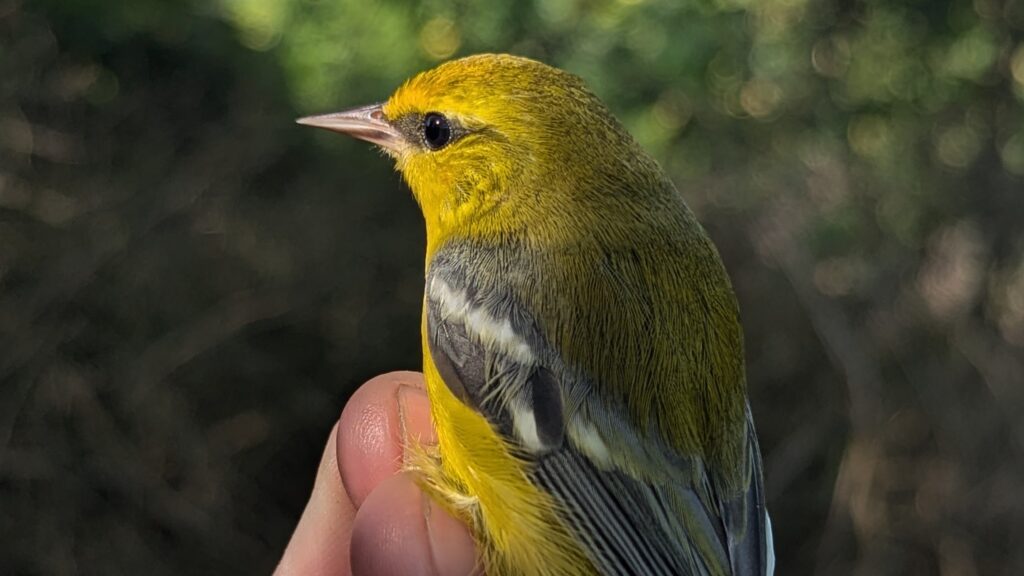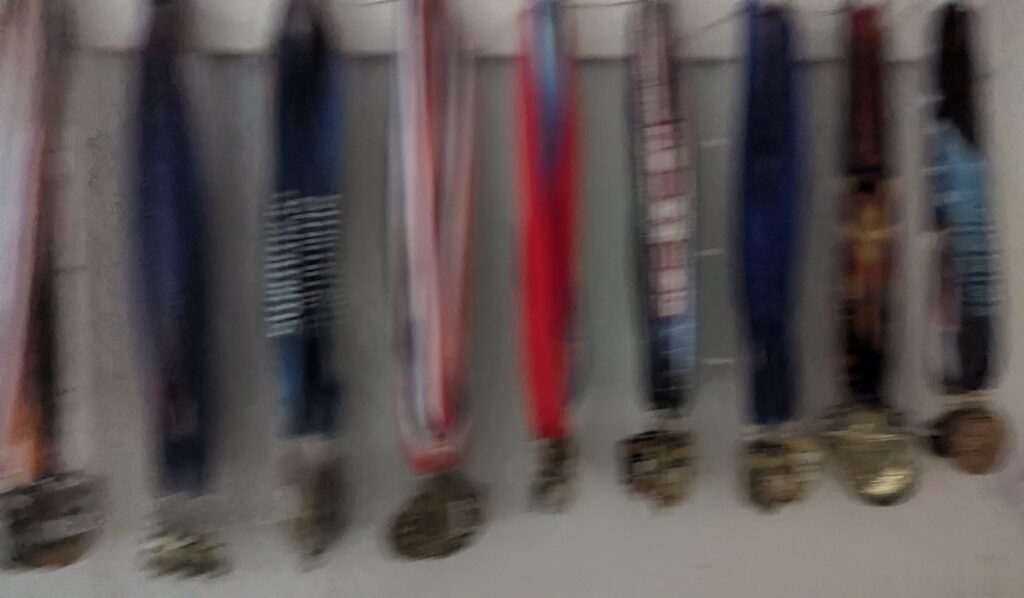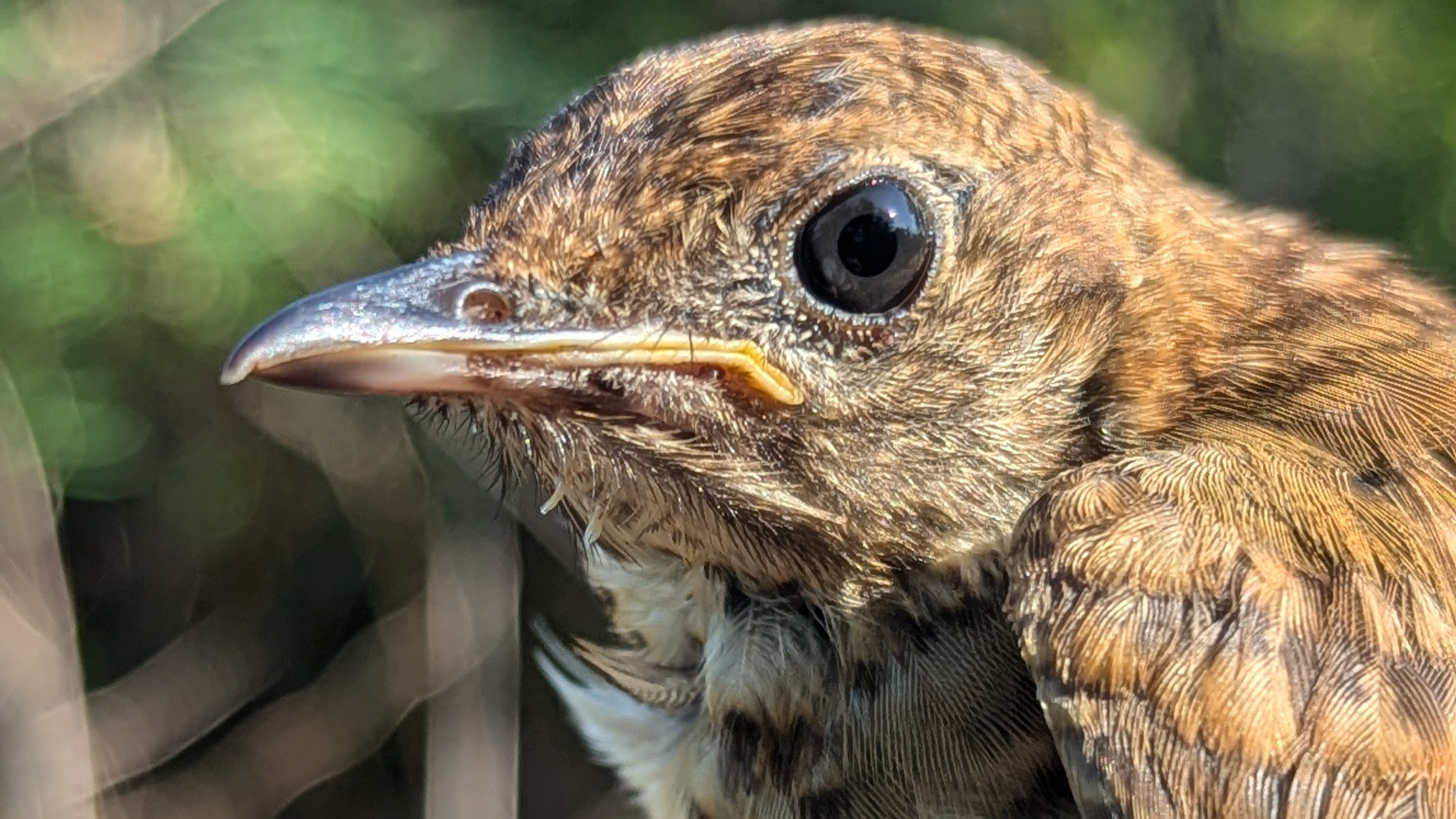At the Veery Least
August 3 2024
71° / 91° partly sunny
By Samantha Bean
I am not sure why I was so shocked to see it. The very word itself has been top of mind in the news and on my phone every day for over a week. Gold. The bright shine of yellow on the young, overly large leaves of the young tulip poplar leaves in the field were in every direction. I almost needed to blink. Aren’t we in the height of summer? How can signs of fall be here so soon? Perhaps festooned for fall way too early, or perhaps a sign of the unusually dry summer. Either way, the golds of the Olympics seemed all too pertinent walking to the banding station for one of our last sessions for the summer season.
It was humid as all heck, but the high clouds kept the sun off our backs for most of the morning. Yet they did little to keep drops of water falling all over our papers and work station from the tree limbs above. We were up early, but the birds always beat us, it seems. Our first net alone was a strong number.
It was one of those sessions where the numbers of birds nearly kept us busy right up until our next net check, leaving us little time for banter. But in the time that we did have, nearly all conversations came back to gold. Who was winning it? What sport was that? And how on earth do some sports give people what seem like other-wordly capacities? And since when did break-dancing become an Olympic sport? In between those conversations, we had a bird that (if we had the Olympic Committee nearby) would certainly be involved in a discussion probably followed by a lengthy social media query.

A flycatcher for sure, but which one? After a brief review, the census was met, that the bird in question was a Least Flycatcher. A simple name, with a very bold white eye ring. Yet for a very unique little bird, that created quite the stir.
| Photo credit: Kate LaMotta |
Yet, the Blue-winged Warbler is one of those birds that seems like it should win a medal all its own. For genetics? For plumage? For all-out stunning features. Overall, there were plenty of birds coming through that had gold going for them. The Great Crested Flycatcher, a few Common Yellowthroats. And a young Veery, more bronze than gold (see image at top of this post). A thrush that is indicative of the changing habitat that this banding station has been alluding to.

But throughout the morning, one very gold bird remained out of a trip to the podium. The American Goldfinch could be heard flying overhead many times in their trademark flight pattern and their darling whistles, yet they remained out of medal contention all morning. It was a strange twist of events for sure. But perhaps they were just too busy to be bothered. (It is their prime time for nesting, as they raise broods much later in the season than other songbirds). Meanwhile, the Gray Catbirds were over the top. We won’t reveal the number, but know that they hit every podium, and then some, but as far as I know, a record from a prior year still stands. We all set a guess early in the morning for our gamification “Catbird Count” but we all fell short and none of us made it past the semi-finals for sure.

As if we were carrying the weight of Olympic medals of our own, the team of banding technicians and volunteers did walk a little slower on our way back, heading to the cars. Our summer is winding down. Thankfully, the next one is much closer than four years. But even still, the excitement level it brings, means it can’t get here quick enough. Thankfully, in the off season, we train with owls before heading back to songbirds in the Spring.

The Wild Bird Research Group, Inc. is a 501 (c)(3) non-profit organization whose mission is to conduct and support research and science-based conservation initiatives that benefit birds and their habitats in the Americas. WBRG and its associates conduct various research, monitoring and education programs in the Mid-Atlantic U.S. and Central America, tropical bird banding internships for university students, owl migration and winter ecology research, and bird-focused environmental interpretive programs.

No responses yet